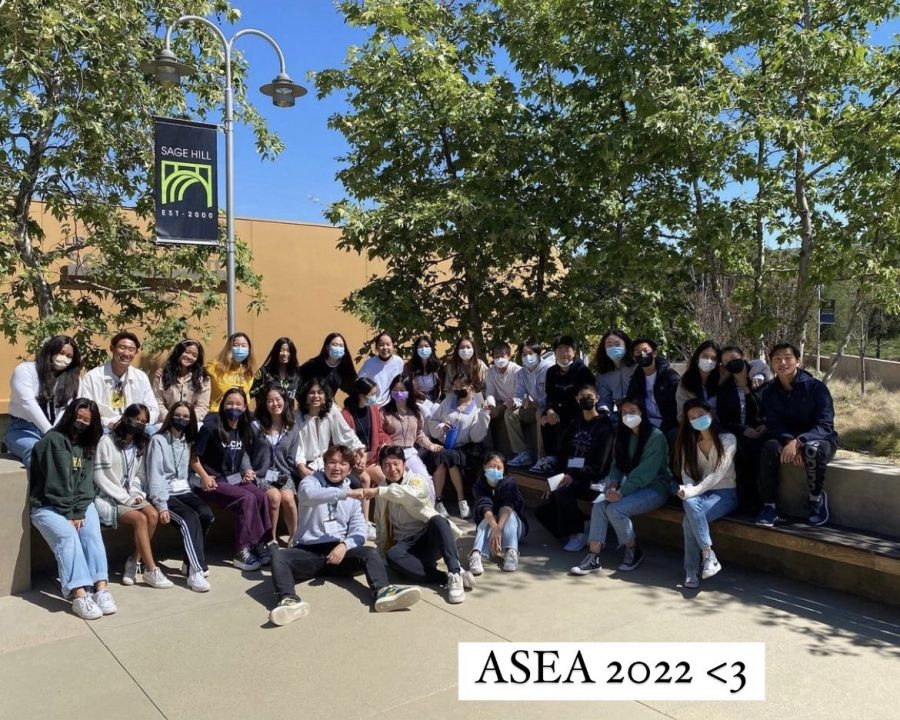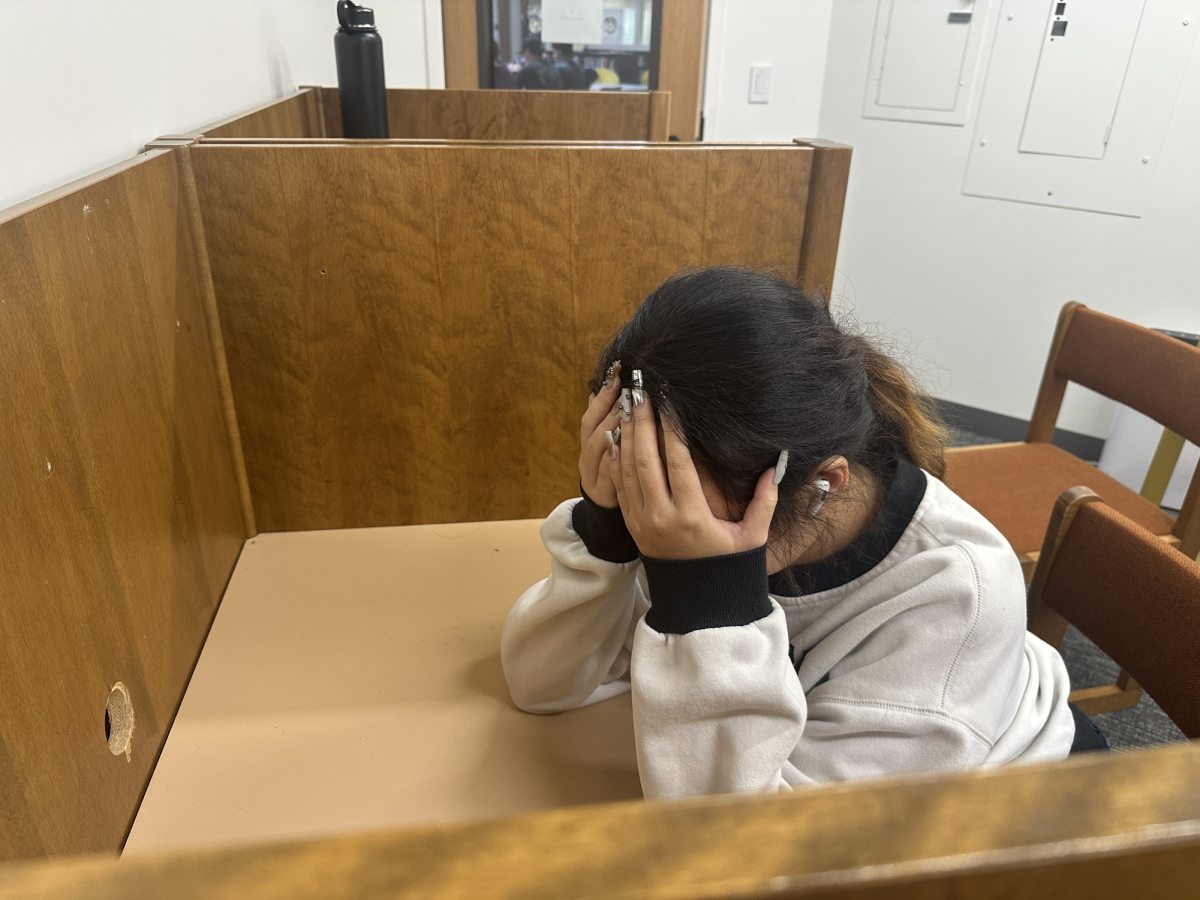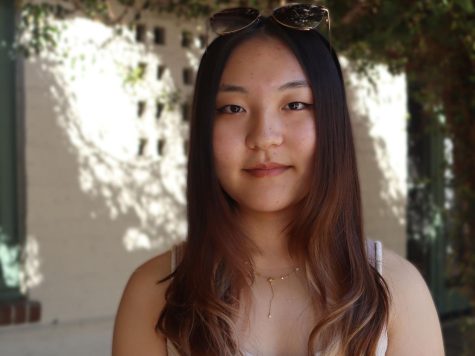From March 26th to March 27th, a group of Webb students and faculty attended the Asian Educators Alliance Conference (AsEA Conference) at Sage Hill School in Newport Beach, California to connect with other Asian students and listen to the stories of others that shared the diverse, yet specific commonality of race as me. I had never been to such a conference just talking about and focusing on identity—I never thought that there was a need for such conversations.
However, I quickly found myself realizing the opposite: conversations around identity are necessary.
“Any kind of conference around identity is helpful, especially [an] in-person [conference],” said John Choi, Director of Equity. “It validates your identity. We have such a wide diversity of AAPIs, [Asian American Pacific Islanders] and we represent at least seven different countries [here at Webb].”
At the conference, educators focused on how to promote and have conferences about diversity in a school setting, and students focused on talking about and exploring our identities as Asian American students living in the United States.
It was a powerful thing to be in a space where I could relate to so many people at once, each one of them giving voice to their own experiences.
It was not the first time that I felt like I could finally be myself, but it was certainly the first time I was met with such positive support and vulnerability; it allowed me to open up more than ever before. The main reason why I chose to attend was to get to know the perspectives of others across the nation and to uncover the similarities amongst diverse experiences.
To do so, we had the amazing opportunity to have Liza Talusan, educator and author of The Identity Conscious Educator, mentor us for the weekend. Through workshops and discussions, we, as students, were able to share our own stories of what it meant to be Asian living in America.
Following her guided exercises, we each pondered about our schools, our lives, and the world around us, asking ourselves three questions to kickstart our journey of reflection:
“What can we continue?”
“What do we need to stop?”
And most importantly, “What do we need to change?”
The most rewarding part of having these small, interpersonal conversations was that I was introduced to a multitude of different perspectives that I would have otherwise never been able to hear about. Some students hailing from Houston, Texas expanded on their experience on how they were the minority in a predominantly white school. They talked about the steps towards diversity they were able to take by working with each other to raise issues when necessary and by creating an East Asian affinity group.
Other students shared similar experiences to those of Webb, where there is a high Asian population, or not much of a basis to focus on diversity, equity, and inclusion because the students were already comfortable without needing to raise awareness about such topics.
“We celebrate [our similarities], but we also want to acknowledge that we are very different, and a conference is not only to share what we have in common, but also our differences,” Mr. Choi said.
Before the conference, I had never given much thought to my identity as an Asian American. I have felt how my race impacts how others perceived me and the cultural differences that sometimes cast me as an outlier in my school but being Asian was never something I focused on.
I think that started to change when I started to realize just how much of my struggles centered around my identity. I remember being made fun of for the food I brought, my facial features—particularly my eyes, and my achievements which were centered around the idea that it was possible because “I was Asian.” It was an experience I had to grow up with, yet something that was not talked about at all, even though these were universal experiences amongst Asians.
For the first time, I shared about myself—things that I never had the opportunity to share outside of my family—in a collective space where everybody had the will to contribute and listen. I felt heard, and I found comfort in that others felt the same way.
“My most rewarding experience from the AsEA conference was the opportunity to take part in an effort to promote and educate about diversity and inclusion as well as having a thoughtful conversation about identity,” Ben Thien-Ngern (‘23), an attendee, said.
As we develop our voices, it leads us to expand our influence, creating a space of powerful understanding and relatability that leads us to appreciate our identities. Likewise, as we enter May, we celebrate AAPI month—Asian Americans and Pacific Islanders Month.
Created by Jeanie Jew, a Capitol Hill Staffer, and Representative Frank Horton whom she shared the idea with, May became designated as AAPI month. It was to honor and not forget those like Jew’s great-grandfather whom racists killed during anti-Asian sentiment in the early 1800s.
Initially, we were only given a week in May when the Congress first passed the legislation in 1979, but they soon extended it to a full month in 1990, and officially named May as AAPI month a couple years later.
This year, AAPI month continues the theme of “Advancing Leaders Through Collaboration”. This theme seeks to bring together people from all backgrounds into leadership, centering collaboration in order to emphasize the voices of those who can bring new perspectives.
“Asians, as much as we represent the world, are much less represented in America. In addition, we are viewed as perpetual foreigners: we are not really seen as ‘American,’” Mr. Choi said.
Although Asians comprise of more than half of the world’s population, only about 7% of Asian Americans are represented in America. Because of this, it can be hard to feel seen and heard in a nation where you are the minority and only just beginning to see yourself represented in the realms of politics, entertainment, and social movements.
In a growing world where we must fight to keep our voices from being suppressed, we must continue to share our stories and voices because perpetuating these discussions and acknowledgments is key to understanding what we can do to change what is around us. Conferences are a start, but we must get comfortable talking about our identities in order to start putting our words into action.







![Many Webb students spend their free time in the library watching a popular TV show like Riverdale and Euphoria. “Based off what I’ve seen, like in Euphoria, because the actors are older, they don't showcase an actual high school life properly,” Sochika Ndibe (‘26) said. “Since [the actors] are older [and] playing a teenager, from a girl’s perspective, it is going to make you think you should look more developed at a young age.” The actor, who plays Veronica Lodge, was 22 years old at the time of filming.](https://webbcanyonchronicle.com/wp-content/uploads/2025/03/Antecol-Media-affects-how-society-functions-graphic-1200x900.png)







